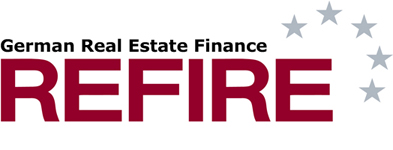
© ted007 - Fotolia.com
Düsseldorf
The increase will see NRW have the highest effective stamp duty in the country, along with Schleswig-Holstein. Government officials expect to reap an extra €400m from the tax increase, which it described as "contributing to a reduction in the rate at which new debt is taken on", in the light of a moratorium on new debt at municipal level by 2020.
Following hot on the heels of the state of Hesse, which precipitated a rush on the available notaries in the state when it raised its acquisition transfer tax (Grunderwerbsteuer) prematurely in August, North Rhine Westphalia has now also announced its own tax increase. NRW's red-green coalition government decreed that Germany's most populous state will increase its rate from 5.0% to 6.5% on January 1st 2015.
The increase will see NRW have the highest effective stamp duty in the country, along with Schleswig-Holstein. Government officials expect to reap an extra €400m from the tax increase, which it described as "contributing to a reduction in the rate at which new debt is taken on", in the light of a moratorium on new debt at municipal level by 2020. The move came after the SPD-Green coalition under Hannelore Kraft had consistently denied it planned to increase the property transfer tax.
Criticism of the new tax increase came hard and fast after the announcement. Martin Dornieden, chairman of the property industry association BFW Nordrhein-Westfalen, commented: "The proposed raising of the property transfer tax from 5% to 6.5% at the end of the year will act as a brake on new residential construction and will intensify the tense housing situation in areas where housing is in heavy demand. The government goal of reducing debt is admirable, but will come at the cost of construction of new rental accomodation as well as adding an extra burden on those planning to buy in the future." Already 17% of the total costs of a newly-built house accrue to the state, and this is about to rise to 18.5% in NRW. The tax rate last rose in October 2011 - from 3.5% to 5%, so the latest rise is effectively a doubling of the tax rate within three years. This has seen the tax part alone of the acquisition of a single-family home valued at €250,000 rise from €8,750 three years ago to €16,250 on January 1st.
Rental rates alone have risen by €1.50 per sqm per month due to political measures over the last few years, claim critics. Given an annual demand for 60,000 to 80,000 new housing units in NRW, increasing the Grunderwerbsteuer again after a mere three years is a grossly irresponsible housing strategy and counter-productive, they say. According to Dornieden, "There will be no defusing of the housing situation based on publicly financed housing alone - we need new private construction of residential housing and self-financing rental housing construction. Things will get even more difficult when interest rates on loans start rising again – that will finally make the dream of home ownership for broad swaths of the population unaffordable"
Also weighing in with criticism of the new tax rise was Dr. Wulff Aengevelt, of Düsseldorf-based property brokers Aengevelt Immobilien. "This latest move – cynically disguised as a measure to avoid the taking on of further new debt – is actually very anti-social, since it hits hardest the private owner-occupiers, who inevitably have to operate within the tightest budget constraints. But it will also affect investors and project developers, who also have finely-calculated yield expectations."
"But the question is – does this tax rise really lead to the enormous extra income that governments expect? Or does it simply lead to a huge rise in so-called "share deals", in which assets are acquired by companies without the payment of the property transfer tax? Within one year of Berlin raising its rates in 2013 the number of share deals in Berlin rose by 41% to more than €4bn, in Frankfurt they doubled to more than €2bn, and quintupled in Düsseldorf to €840m. Not only has this led to the loss of hundreds of millions of tax revenue, but also to a loss of market transparency, since the data in such transactions and therefore big chunks of the market are not officially captured by municipal advisory committees. In addition, the tax increase, much like the rental cap or Mietpreisbremse, won't help to build a single new apartment – on the contrary, it will set marginal households back years, prevents them from building property wealth, and encourages large-scale tax avoidance. This is both unfair and antisocial."
Given the surge in property investment in Germany over the past few years, fuelled by all-time low interest rates, it's not surprising that the federal states have seen strong net increases in the tax take from their property transfer taxes, most of which (bar Saxony and Bavaria) have raised their tax rates over the past 24 months. Latest figures from the Berlin Finance Ministry show that in September alone a total of €838m in property transfer tax flowed into the federal states' coffers – an increase of 0.8%. For the first three quarters of this year the amount totaled €6.9bn, an increase of 10.1%. The Finance Ministry reckons with a full-year rise of 9%, for a total of €9.2bn.
